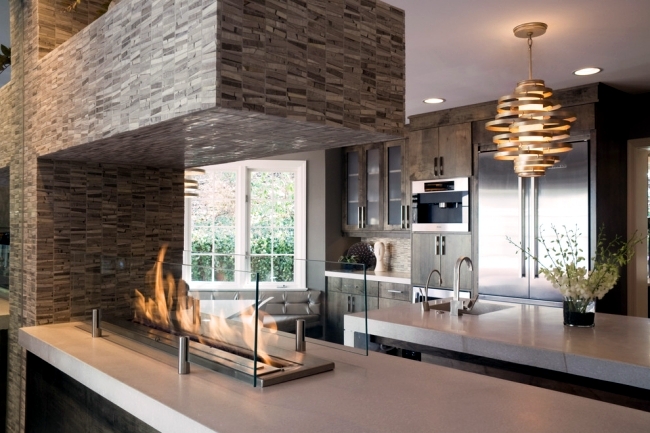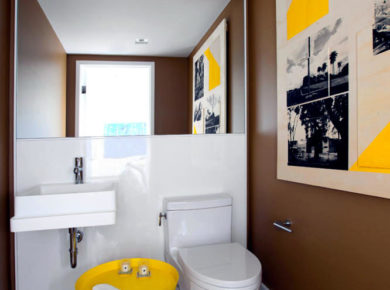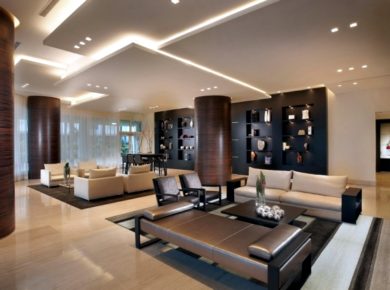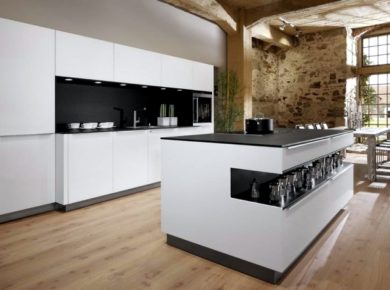
The fire is burning in the fireplace at home is relaxing and romantic. However, fireplaces and stoves you need to evaluate not only their appearance, but consider some basic technical requirements. According to the different types of chimney, fireplace serve as an eye-catcher in the living room or to heat the whole house and still provide hot water. In the paper, we present an overview of the different types of fire – classic fireplace, heater, electric fireplaces, gas fireplaces, hot air chimneys and fireplaces as leading central heating water for the whole house .
Fireplaces and stoves for the modern home

Place the pan – where and how?
It is desirable to have the stove set up on an interior wall or in the north of the house. This is the result of the thermal barrier and the house is well insulated in winter. Modern fireplaces are usually open on all sides, so they are highlight in the room. For those with bio-ethanol, the site does not matter, because they are non-smoking and give warmth to heat without metal or firebrick. They are often incorporated into furniture or even mounted on the wall. They are very light, flexible and do not take up much space.
Fireplaces, stoves three visible faces

Ideally, the stove is equidistant from all the parts you want to heat. The size of the stove must be coordinated with the space and the condition of the building and chimney. The supply of solid fuels with optimum thermal high calorific value as coal, wood pellets, but the smoke and ash are produced. For liquid fuels, such as oil, the only downside of the smoke, but the heat is very good. Biofuels are the best alternative, because you do not smoke or soot.

The fireplaces are not so popular, because falling ash can be uncomfortable for cleaning. The latest trend in interior design are fireplaces multi-sided glass and closed gas fireplace., You can see the fire from different areas in the room. The risks can be minimized, but you must have at least one meter from any flammable object.
Pay special attention to the chimney

Contrary to what many believe to be the most important component of the system is not up the chimney itself, but the chimney. The deduction should be considered on all sides – in terms of safety and comfort. You definitely need a specialist in the design, construction and maintenance of the chimney. It is expensive, fireplaces and stoves to buy with bad exhaust system. It is not only the cost but also serious fire hazard.

The chimney has two functions. The first is to direct the exhaust gases away from the living area. The second task is to act as a combustion catalyst. Often, the combustion chambers are equipped with such mechanisms, the increase or decrease in order to slow down or accelerate combustion of the flow of oxygen. The stack height should be taken into account – the higher, the more powerful is the thrust and combustion – strong.

This is not always desirable. In recent years, fires developed in Finland, where the combustion process is deliberately slow with a plurality of chambers. In these devices, the smoke is not easily released into the atmosphere and the heat is distributed over an extended period. When the smoke repels, you should check that the chimney is not blocked.
Finally, do not forget maintenance. It depends Kaminart and fuel. The bioethanol fireplaces require no maintenance, because ethanol is completely burns without smoke. In other fireplaces and stoves, you must clean up the ashes before each heating and fireplace – at least once a year.
Aquifers fireplaces can heat the whole house

In addition to comfort and love fireplaces and stoves have a number of other benefits. For example, you can choose the fireplace as a heating system for the whole house. For this you need a generator system hot air or hot water fireplace. This insert must be connected to the central heating system through a buffer. By connecting the heating circuit of the aquifer fireplace warms the other rooms of the house and could also prepare hot water. Fireplaces with hot bag are a good solution because it emits heat even after the fire is out.

The different types of fire:
• classic fireplace – Classic. With this fireplace you have direct contact with fire. The main disadvantage of this type of home is that they have a very low efficiency – 10 to 20 percent, which means they lose a lot of wood, without heating the room. There is no barrier between the fire and space, creating a high fire risk. The classic fireplace with open fire can not be bought in stores. It is built on the site and refractory bricks.

• storage heater – These homes have a closed fireplace, which provides better efficiency. These fireplaces have a glass door, which improves security. When the door is opened, the effectiveness of these homes could fall by more than 70 percent. Most of these homes are designed to burn wood, coal and briquettes.


• Gas fireplaces – they are very cost effective and environmentally friendly thanks to low-emission combustion. According to the size they provide 3-8 kW of heat output. Gas fireplaces need a gas connection or gas liquefied petroleum gas (propane) from bottles. They are not particularly decorative, but have a good efficiency.





• Electric fireplaces – These homes are increasingly in demand because they do not have the disadvantages of wood fireplaces. Electric fireplaces have the user through their cleanliness and ease of installation. Only the plug into the outlet and the oven is ready! Most electric fireplaces are also equipped with a remote control that lets you control the heat output. These fireplaces can be easily integrated into the furniture and the wall.



• The bioethanol fireplaces – they make for a warm atmosphere and authentic jewelry can be in your home. If ethanol is burned, does not create smoke, Russ, toxic or harmful. These chimneys with open flame heat the room very quickly, but the effect is short-lived. Since no connection is required, designers are always innovative in their new designs. You will find different shapes and sizes on the market.



Lay underfloor heating – types, costs, advantages and disadvantages









